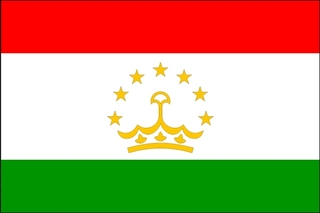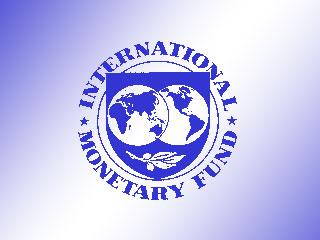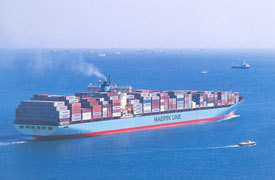For several years the position of Polish exporters on the markets of the former Commonwealth of Independent States has been clearly weakening
Published:
5 May 2003 y., Monday
In order to spur on trade, presentations of Polish exporters are gaining popularity. One such presentation is the Polish National Exhibition in St. Petersburg.
Geographic proximity, relatively small competition from local manufacturers who are not capable of satisfying the growing demand for modern products and, contrary to common belief, the increasingly wealthy and demanding customer, are the advantages of the "eastern market." Why then does trade with the countries of the Commonwealth of Independent States (CIS) constitute as little as 7.1 percent of the global value of Polish export?
The position of Polish companies is weakened by competition from the Western businesses that are perfectly aware of the perspectives which an active and strategically planned entry into Eastern markets can accomplish. Entrepreneurs from Germany, France and the United States, supported by the appropriate funds, first promote and then successfully sell their products in Russia and Ukraine or make direct investments there.
The decrease in the amount of Polish agriculture and food products exported to Eastern markets has stemmed from the fact that big international concerns such as Nestlé, Danone or Unilever directly entered this strategic area. However, the issue of Western competition is only a part of the answer to this question and the possibility of development for Polish exporters on the markets in the former Soviet Union.
One of the most serious difficulties Polish companies encounter is a considerable risk connected with signing commercial contacts with partners from the East who frequently appear to be insolvent and do not honor their contracts. According to Robert Stawski from the Promotion Chamber of the Polish Chamber of Commerce, businesspeople from Russia frequently do not understand the term "advance payment" and sometimes want to pay for the products only after they sell them. For obvious reasons, these terms are hard to accept for Polish manufacturers, which are mostly small and medium-sized companies. The state does not guarantee any protection for companies against situations in which partners from Russia, Belarus or Ukraine do not fulfill the terms of a commercial contract.
Šaltinis:
warsawvoice.pl
Copying, publishing, announcing any information from the News.lt portal without written permission of News.lt editorial office is prohibited.
The most popular articles
 A record 131 economies around the globe reformed business regulation in 2008/09, according to the IFC–World Bank Doing Business 2010 report.
more »
A record 131 economies around the globe reformed business regulation in 2008/09, according to the IFC–World Bank Doing Business 2010 report.
more »
 The World Bank’s Board of Directors today approved a US$5 million grant to improve the quality of electricity services in Haiti and strengthen the financial and operational performance of Electricité d’Haïti, the public electricity utility.
more »
The World Bank’s Board of Directors today approved a US$5 million grant to improve the quality of electricity services in Haiti and strengthen the financial and operational performance of Electricité d’Haïti, the public electricity utility.
more »
 Firuza Ziyoeva, a 42-year old mother of five, lacks any sustainable income for her family – her husband is unable to work due to disabilities and their children are all young.
more »
Firuza Ziyoeva, a 42-year old mother of five, lacks any sustainable income for her family – her husband is unable to work due to disabilities and their children are all young.
more »
 The Managing Director of the International Monetary Fund (IMF), Mr. Dominique Strauss-Kahn, made the following statement today regarding Singapore’s commitment to increase fourfold its contribution to the Fund’s New Arrangements to Borrow (NAB) by US$1.5 billion, to a total of US$2 billion.
more »
The Managing Director of the International Monetary Fund (IMF), Mr. Dominique Strauss-Kahn, made the following statement today regarding Singapore’s commitment to increase fourfold its contribution to the Fund’s New Arrangements to Borrow (NAB) by US$1.5 billion, to a total of US$2 billion.
more »
 Statistics Lithuania reports that, based on non-final data obtained from customs declarations and Intrastat reporting data, exports in I half-year 2009 made LTL 19 billion, while imports – LTL 21.2 billion.
more »
Statistics Lithuania reports that, based on non-final data obtained from customs declarations and Intrastat reporting data, exports in I half-year 2009 made LTL 19 billion, while imports – LTL 21.2 billion.
more »
 Since 7 September 2009 AB Bank SNORAS for residents and economy subjects begins to distribute a new savings product - certificates of deposits.
more »
Since 7 September 2009 AB Bank SNORAS for residents and economy subjects begins to distribute a new savings product - certificates of deposits.
more »
 “We are 53 diverse countries differently affected by the crisis, 1 billion people that cannot be ignored”. That was the stark message to Members of Parliament's Development Committee from Donald Kaberuka, the head of Africa's Development Bank at a hearing on 3 September in Brussels.
more »
“We are 53 diverse countries differently affected by the crisis, 1 billion people that cannot be ignored”. That was the stark message to Members of Parliament's Development Committee from Donald Kaberuka, the head of Africa's Development Bank at a hearing on 3 September in Brussels.
more »
 The European Investment Bank has granted a EUR 450 million loan to AENA (Aeropuertos Españoles y Navegación Aérea) for upgrading and expanding Spain’s air traffic control facilities in order to optimise their overall efficiency and ensure that they comply with international regulations.
more »
The European Investment Bank has granted a EUR 450 million loan to AENA (Aeropuertos Españoles y Navegación Aérea) for upgrading and expanding Spain’s air traffic control facilities in order to optimise their overall efficiency and ensure that they comply with international regulations.
more »
 Statistics Lithuania informs that in August 2009, against July, prices for total industrial production sold increased by 0.9 per cent.
more »
Statistics Lithuania informs that in August 2009, against July, prices for total industrial production sold increased by 0.9 per cent.
more »
 Despite signs the near two-year U.S. recession may be over - Americans are still finding it hard to get a job.
more »
Despite signs the near two-year U.S. recession may be over - Americans are still finding it hard to get a job.
more »